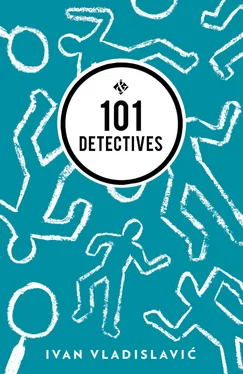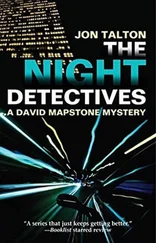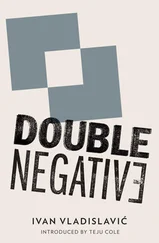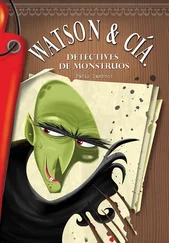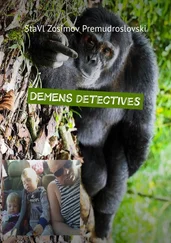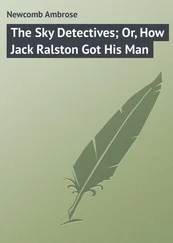Ivan Vladislavic - 101 Detectives
Здесь есть возможность читать онлайн «Ivan Vladislavic - 101 Detectives» весь текст электронной книги совершенно бесплатно (целиком полную версию без сокращений). В некоторых случаях можно слушать аудио, скачать через торрент в формате fb2 и присутствует краткое содержание. Год выпуска: 2015, Издательство: And Other Stories Publishing, Жанр: Современная проза, на английском языке. Описание произведения, (предисловие) а так же отзывы посетителей доступны на портале библиотеки ЛибКат.
- Название:101 Detectives
- Автор:
- Издательство:And Other Stories Publishing
- Жанр:
- Год:2015
- ISBN:нет данных
- Рейтинг книги:4 / 5. Голосов: 1
-
Избранное:Добавить в избранное
- Отзывы:
-
Ваша оценка:
- 80
- 1
- 2
- 3
- 4
- 5
101 Detectives: краткое содержание, описание и аннотация
Предлагаем к чтению аннотацию, описание, краткое содержание или предисловие (зависит от того, что написал сам автор книги «101 Detectives»). Если вы не нашли необходимую информацию о книге — напишите в комментариях, мы постараемся отыскать её.
and
, invites readers to do some detective work of their own. Each story can be read as a story, but many hide clues and patterns. Whether skewering extreme marketing techniques or constructing dystopian parallel universes, Vladislavic will make you look beyond appearances.
101 Detectives — читать онлайн бесплатно полную книгу (весь текст) целиком
Ниже представлен текст книги, разбитый по страницам. Система сохранения места последней прочитанной страницы, позволяет с удобством читать онлайн бесплатно книгу «101 Detectives», без необходимости каждый раз заново искать на чём Вы остановились. Поставьте закладку, и сможете в любой момент перейти на страницу, на которой закончили чтение.
Интервал:
Закладка:
The door had barely closed when the manual dropped into her inbox. The cover said ‘User’s Guide’ in many different languages. Half the pages were devoted to numbered diagrams with arrows showing the placement and movement of head and limbs.
The drawing pin jitters across the desktop with a tinny hum, while the storyteller counts off the seconds on her stopwatch. The silver cap spins straight and true, as if eleven seconds are nothing, and then in a moment wobbles and cants and falls over. A pristine plane, she thinks, not a scratch, no blade, nib or compass point has come near it. Yet it leaches the momentum out of her top in an instant. The last of three tries, all short of the target. Now there’s nothing for it.
She glances at the draft of her story on the screen, her new piece for the forthcoming quarterly board meeting. There’s the title and the start of the first line. The Art of Falling, it says. And on a new line: It’s been said that the art of falling… And that’s all. Not a word more in three days.
She slips her feet out of her shoes and lines them up with her toes. She reaches into a drawer for the forbidden notebook. It’s a pocketbook bound in soft brown leather. She opened it carefully when she bought it, starting with the flyleaves and peeling off pages at the front and the back in turn, pressing each one flat and running her thumb along the stitching at the spine, working her way methodically through the sections until she reached the centre spread. Then she numbered the pages in the top corner in pencil. The rest is blank.
She steps onto the footplate and crouches beneath the hood with the ruff over her shoulders. This is always the worst part: she must force herself to go on. An anticipatory hum sounds from the hollow above. She pushes her feet into the stirrups and straightens her knees until the top of her head touches the rubber. It smells like soup again, schmaltz and floury dumplings. Her scalp bristles as the hood begins to suck. She opens the notebook on the console, shuts her eyes and thrusts her head into the aperture.
Grey and damp. It’s never been like this before. She feels shivery, light-headed, short of breath. Perhaps she’s at high altitude? She would see far, over crags and precipices, if the mist lifted. Watery clouds envelop her, beading her eyelashes and flattening her hair against her scalp. She catches her breath, and breathes, deeply and slowly, trying to strain the smell of rotting leaves and disinfectant through her nostrils. When she opens her eyes again, she’s drifting in the cloudscape. She floats over hilltops and it’s almost pleasant. Once she tries to speak, but her jaw is locked. It’s freezing up here, she thinks, and squeezes her elbows to her ribs. This reminds her of the book in her hands and reattaches her head to her body. She pictures the page curving like muscle from the spine, the goose-pimpled skin of the paper.
Who’s that? A man at a window. A man in a black frock coat and a broad-brimmed hat. No, it’s too vast to be a window: a wall of glass. He is rocking like a metronome.
She remembers. It’s the transit lounge in Zürich. She’s found a quiet annex, away from the crowds at the overpriced coffee counters and duty-free shops, where a trio of conjoined chairs faces the apron. She’s dozing with her computer bag clasped to her side when a shadow flicks over her eyelids, coming and going like a pendulum. She peers through half-opened lashes. Near her a man has come to pray. He is swaying close to the sheer glass, which magnifies the outside world like an immense lens, blistered and veined with rainwater. On either side, gleaming fuselages are coupled to the concertina folds of gangways, but the bay in front of the praying man is empty. An expanse of wet tarmac stretches towards a hangar with its door gaping. This steel-framed black space is a gigantic version of the screen she spends her days gazing into. The man wears a hat with a tall crown and a saucer brim, perched high on his head, and he holds a book but never looks at it: the litany on his lips he knows by heart. His voice rises and falls, scattering dust on the polished veneers of the terminal. A remnant of old Europe in a costume out of a museum, perhaps not even a man but an automaton, bowing repeatedly to the void. Although she cannot understand a word, she hears a melody and counterpoint of resignation and protest. Half-asleep, entranced by the spindrift of his beard breaking on the lapels of his coat, she begins to mumble the prayer under her breath.
A memory stirs in her joints. She tries to follow the motion of the man in the hat, but the hood tightens its headlock. Instead of moving her torso, she moves her hips. The mist is audible, the words spurt from the man like air from a bellows and curl around her temples. A glow begins to rise under the hood and she smells rubber. She keeps on swaying her hips, scraping her shins against the calipers.
For a moment she pictures herself in the corner of her office with her head in the pod, but the image is unconvincing.
She closes the book on her forefinger, keeping the place, and presses the spine between her legs. As she sways, one strategic thrust after another chugs along the rosy membrane in capital letters, moving from right to left as resolutely as breaking news. Is she reading or writing? Is someone speaking? The stream reveals nothing. The pod owns the syntax, she thinks. Perhaps the vocabulary is mine, the soft, warm deliverables? She identifies inputs and outputs and aligns them with the mission statement, and then she manages them efficiently and effectively through the downswing and the uptick.
She would drift in the overproduction of pleasure, with the empty book squeezed between her thighs, but the pod loses interest abruptly. Sinking down on the footplate, she observes that the door of her office is still closed, thank God, and sits there rubbing her shins while her breathing slows.
The storyteller has her feet up on her ice-white desk. She wishes she could busy her hands with a smoke, although it’s strictly forbidden and would set off the fire alarm. She laces her fingers behind her head instead. The light on the telephone has been blinking ever since she came out of the pod. It can wait.
She holds out her hands to see whether they’re still trembling. She feels more like herself, but the office is as unfamiliar as a hotel room and the man in the hat bothers her. Where in God’s name did he come from?
She looks again at the title of her new story on the screen: An Unexpected Climax. Is it fit for a corporate fiction? That depends on whether it promotes the corporate vision. When it’s done, she’ll try it out on Simonetta, the receptionist on floor 17. Erotic fiction is her thing. Then the Equity Committee, Credit & Risk. One step at a time.
She runs through the first line in her head: They say that an unexpected climax… And then she looks out of the window. Perhaps I’m not made for the storytelling racket, she thinks. I should find another occupation.
Just then, a camera pops up in the bottom of the window frame.
For a startled moment, she thinks it’s a gun. Someone has been sent to kill her. This is how the corporation terminates your services; she’s invited the chop with her lack of enthusiasm and resistance to self-improvement. But no, if she’s being shot, it’s only with a camera. The device drops out of sight briefly and then rises again with intent and she sees that it’s attached to a human head. The head of a man. Now , she thinks.
The camera is rigged to a padded skullcap that elevates it slightly above the man’s head. When he looks at her, it’s like being looked at by two people. A camera crew.
She waves. She recognises the regal gesture as she’s making it: it’s the stiff-fingered, windscreen-wiper salute of modern royals. The motion you would make removing a grease spot from a mirror.
Читать дальшеИнтервал:
Закладка:
Похожие книги на «101 Detectives»
Представляем Вашему вниманию похожие книги на «101 Detectives» списком для выбора. Мы отобрали схожую по названию и смыслу литературу в надежде предоставить читателям больше вариантов отыскать новые, интересные, ещё непрочитанные произведения.
Обсуждение, отзывы о книге «101 Detectives» и просто собственные мнения читателей. Оставьте ваши комментарии, напишите, что Вы думаете о произведении, его смысле или главных героях. Укажите что конкретно понравилось, а что нет, и почему Вы так считаете.
